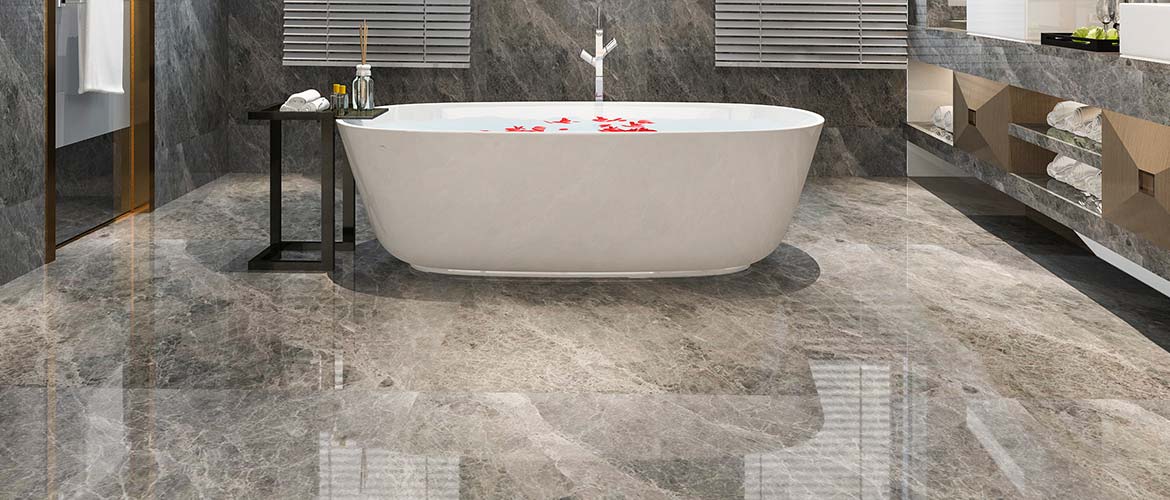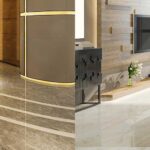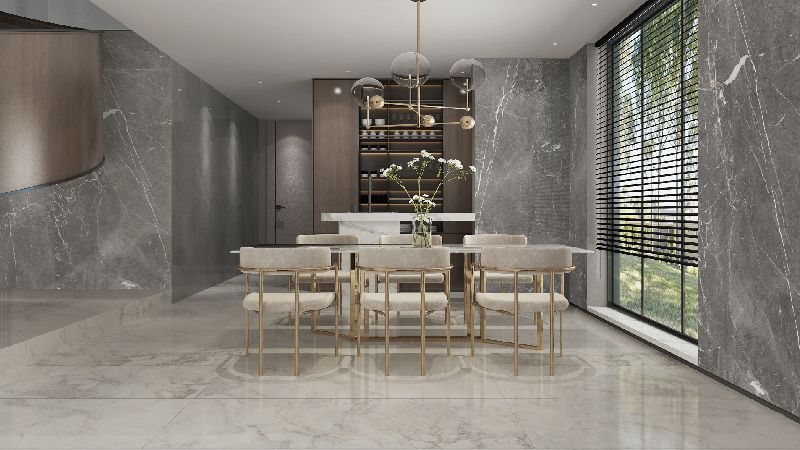In the 70s, the introduction of porcelain stoneware was hailed as the turning point of ceramic production. Till then, only ceramics were used as flooring material. The introduction of porcelain changed the game, and increased the popularity of ceramics and porcelain
Before we walk you through the benefits of porcelain stoneware, let’s first understand the differences between ceramic and porcelain tiles.
Understanding Porcelain Tiles: Differences from Ceramic Tiles Explained
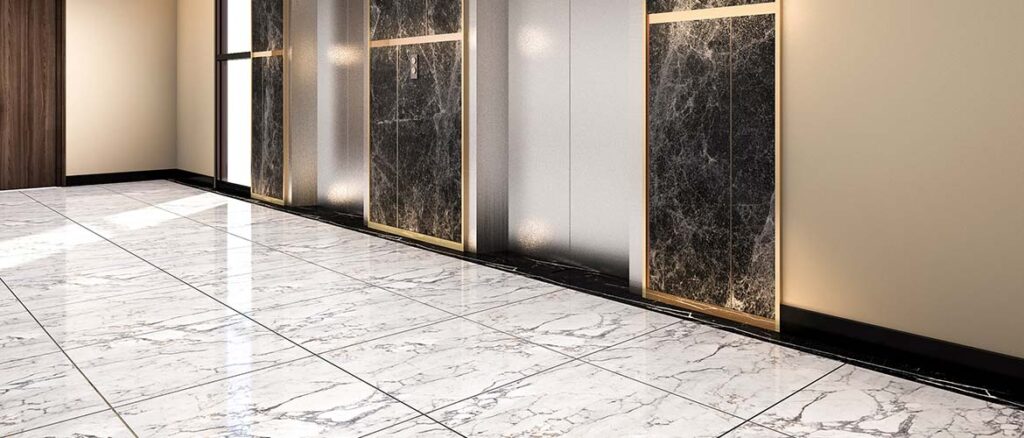
Before we walk you through the benefits of porcelain stoneware, let’s first understand the differences between ceramic and porcelain tiles.
During the manufacture of porcelain stoneware, finely ground and pressed sand is added to traditional ceramic clay. This makes porcelain more dense, less porous, flexible and resistant.
The flexible nature of porcelain tiles is what makes it a popular flooring choice for contemporary homes. Porcelain floor tiles can be designed to resemble several materials. Whether you want your tiles to look like natural stones or even unusual materials like fabric, felt, or wood, you can get the exact finish with porcelain floor tiles.
As the leading porcelain floor tiles supplier in India, our clients often ask us, “why should I use porcelain over other flooring choices?” In this guide, we compare porcelain to several other common flooring materials, highlighting the pros and cons of porcelain stoneware, so that you can make an informed decision for yourself.
Porcelain Floor Tiles vs Parquet (Wooden Flooring)
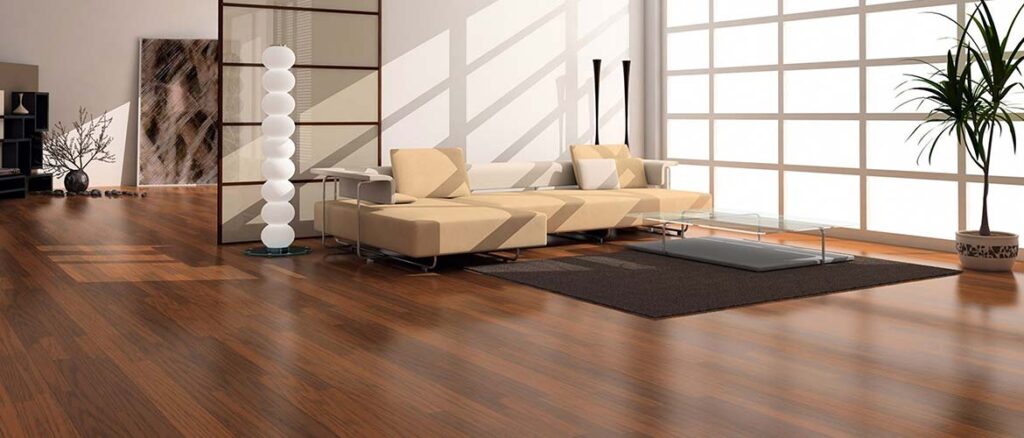
Parquet is a traditional wooden flooring made by lining slats of wood in specific patterns. The beauty of porcelain stoneware is that it can resemble natural wood flooring. The manufacturing technology of porcelain tiles has improved so much that porcelain floor tiles resemble wood perfectly to the eye and touch, so much so that there is no visible difference.
While wood has elegant aesthetics, it’s not preferred for flooring as it’s extremely high maintenance. It requires constant waxing, treatment with oils and the occasional sanding, making it extremely expensive to maintain.
On the other hand, porcelain floors do not require any extra maintenance. Regular cleaning with a broom and wiping with a mop is sufficient to keep the floors looking good as new forever. Since porcelain stoneware is resistant to scratches, it doesn’t show any scruff marks or other signs of wear and tear.
Furthermore, wood is not the right choice for environments with high humidity. On the other hand, porcelain stoneware is perfect for all environments due to its weather-resistance.
Very often, laminates, PVC and vinyl tiles are suggested as alternatives to wood. But, the problem with these materials is that though they are easy to maintain, they do not score well on aesthetics. Unlike porcelain tiles, these materials have a uniform synthetic finish that doesn’t resemble natural wood.
If you’re looking for a low maintenance alternative to wooden floors, without compromising on the aesthetics, then porcelain tiles are the best choice.
Porcelain Floor Tiles vs Marble
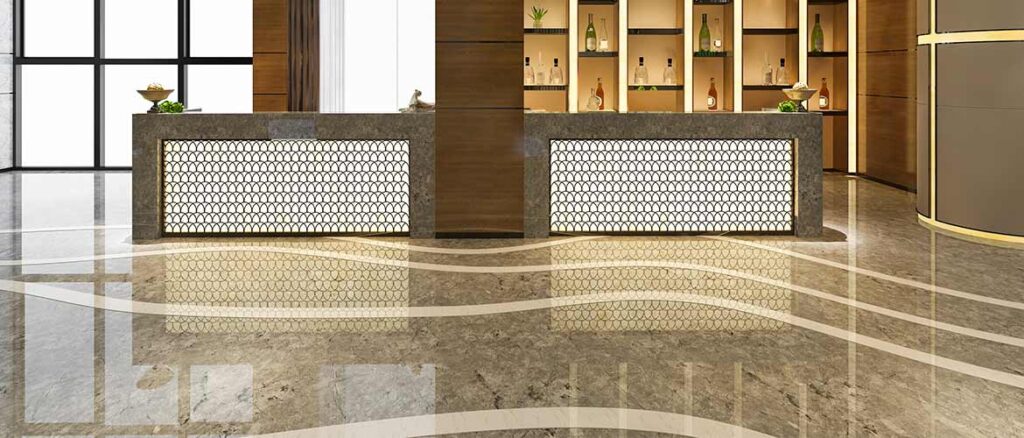
For decades, marble floors have been considered as the epitome of luxury and elegance. But the problem with marble tiles is that they are extremely expensive and can easily stain. Porcelain tiles, on the other hand, are stain-resistant making them easy to maintain and clean.
When it comes to aesthetics, porcelain tiles are on par with marble. Thanks to the latest technological development, it’s possible to create porcelain tiles that offer the beauty of marbles. You can create floors that look just like marble with high-quality, premium porcelain tiles. Whether you prefer the elegance of Indian calcutta marble or the sophistication of Italian marble, porcelain tiles can easily replicate the look and feel of the world’s premium marbles.
Additionally, the lightness of porcelain makes it easy to cut and install. Marble, on the other hand, is a heavy natural stone that is difficult to cut and install. This, in turn, increases the overall installation cost.
If you’re looking for a budget-friendly alternative to marble, without compromising the quality, the porcelain tiles are the better choice. These tiles are super easy to maintain, making them an excellent choice for all floors, both residential and commercial.
Porcelain Floor Tiles vs Natural Stone
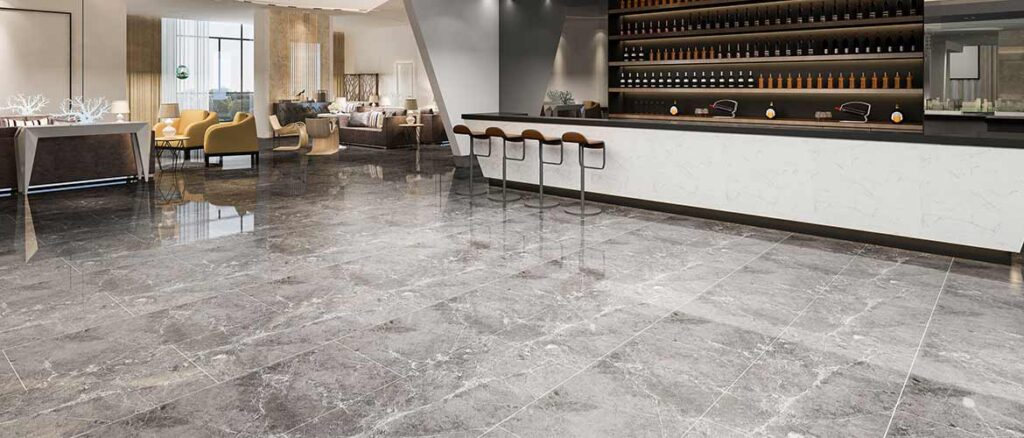
Porcelain has several characteristics of natural stone like:
- Weather-resistant
- Frost-resistant
- Long durability
- Resistant to shocks and stress
- Doesn’t show signs of wear and tear
The other benefits of porcelain are that unlike natural stones it is easy to install, weighs less and is available in a variety of textures and designs, that are not available in natural stone. Unlike natural stone, porcelain has high conductivity, making it an excellent choice for floors with heaters installed underneath.
Another advantage of porcelain over natural stone is that it’s resistant to bacteria and moulds, making it a friendly choice for homes with small kids, seniors and pets. Since, porcelain tiles are thinner than natural stone slabs, it’s easy to cut and install.
Wrapping Up
If you’re looking for an easy maintenance and long-lasting flooring choice then porcelain tiles are the best choice. For the best porcelain tiles for your homes and commercial complexes, reach out to Emperors Vitrified Porcelain, the no.1 porcelain stoneware supplier in India. With dozens of choices and hundreds of designs, we’ve got the perfect porcelain tiles for all your needs.


